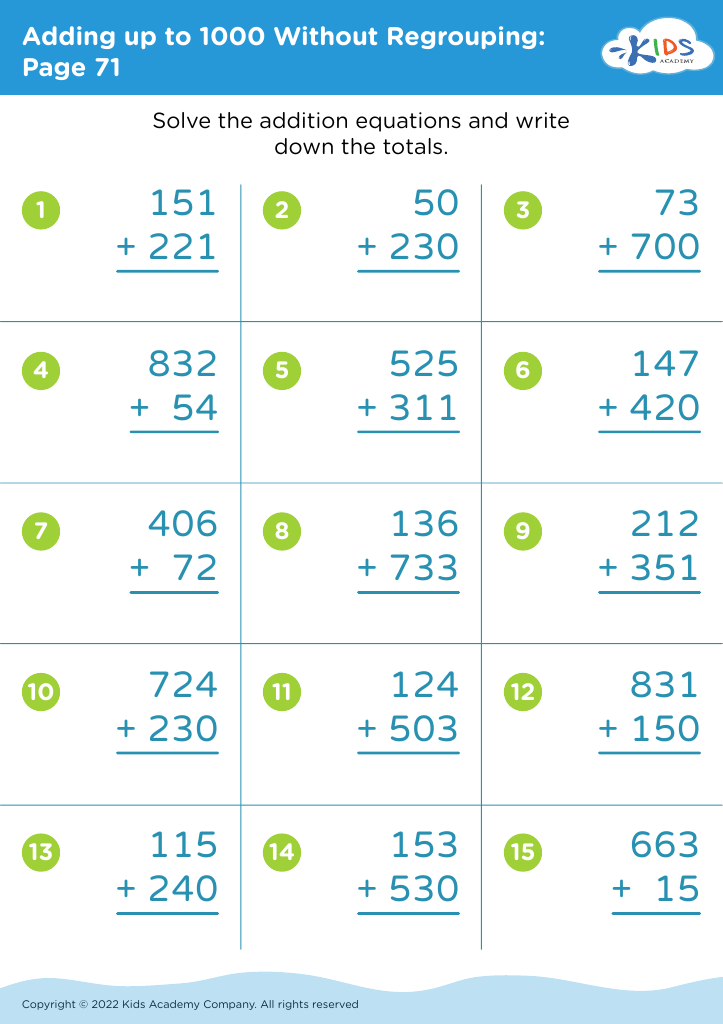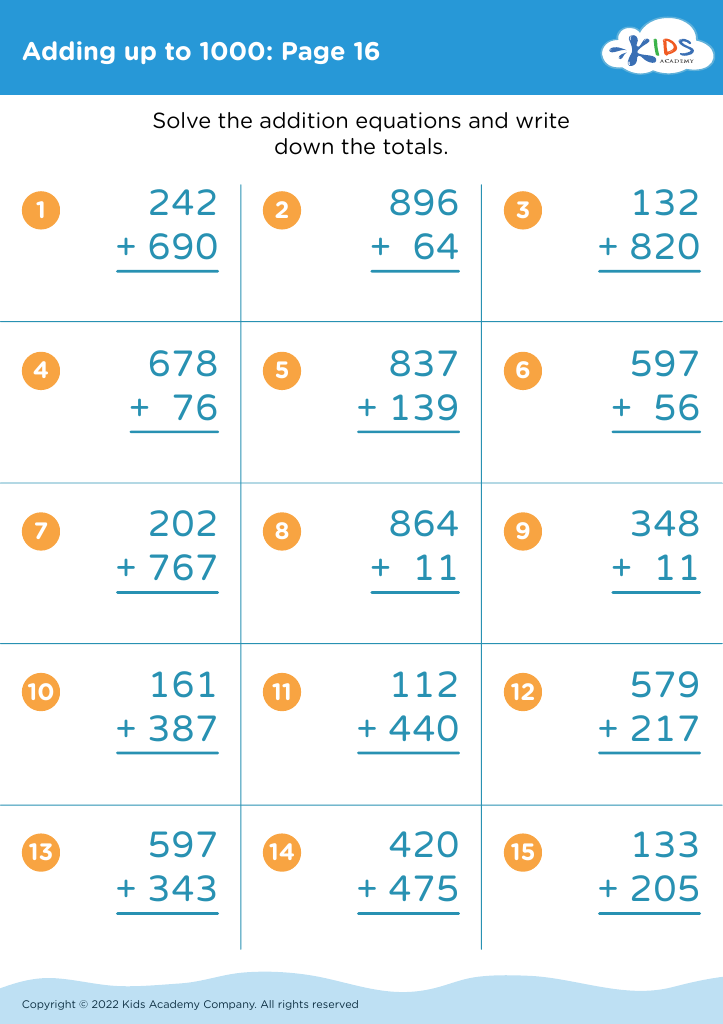Improve counting Worksheets for Ages 4-8
3 filtered results
-
From - To
Discover engaging "Improve Counting Worksheets" designed specifically for children aged 4-8 to enhance their counting skills! Our interactive and colorful worksheets offer a fun learning experience, allowing young learners to practice counting through a variety of activities. From number tracing and matching to counting objects and filling in missing numbers, each worksheet is crafted to reinforce essential math concepts. These resources foster a love for numbers while helping children build confidence in their counting abilities. Perfect for home learning or classroom settings, our worksheets make mastering counting enjoyable and effective. Explore our collection today and watch your child's math skills flourish!
Improving counting skills for children aged 4-8 is crucial for several reasons that resonate with both parents and teachers. Firstly, counting serves as a foundational math skill that fosters cognitive development. Mastery of counting not only establishes a base for more complex mathematical concepts but also enhances children's problem-solving abilities and critical thinking skills.
Moreover, counting is integral to daily life. Children learn to quantify objects, understand quantities, and make comparisons, which are essential skills for shopping, cooking, and budgeting in the future. By nurturing counting skills early on, parents and teachers help children develop numerical literacy, empowering them in various real-world scenarios.
Additionally, counting is linked to language development; children learn to identify and articulate numbers, promoting vocabulary acquisition. Engaging activities such as counting games, songs, or visual aids can make learning enjoyable and interactive. This positive attitude towards learning can nurture a lifelong love for mathematics.
Furthermore, as children encounter standardized assessments in school, strong counting skills can lead to improved academic performance, boosting their confidence and self-esteem. Thus, fostering counting abilities in young learners is essential for their overall development, academic success, and future problem-solving opportunities.



















